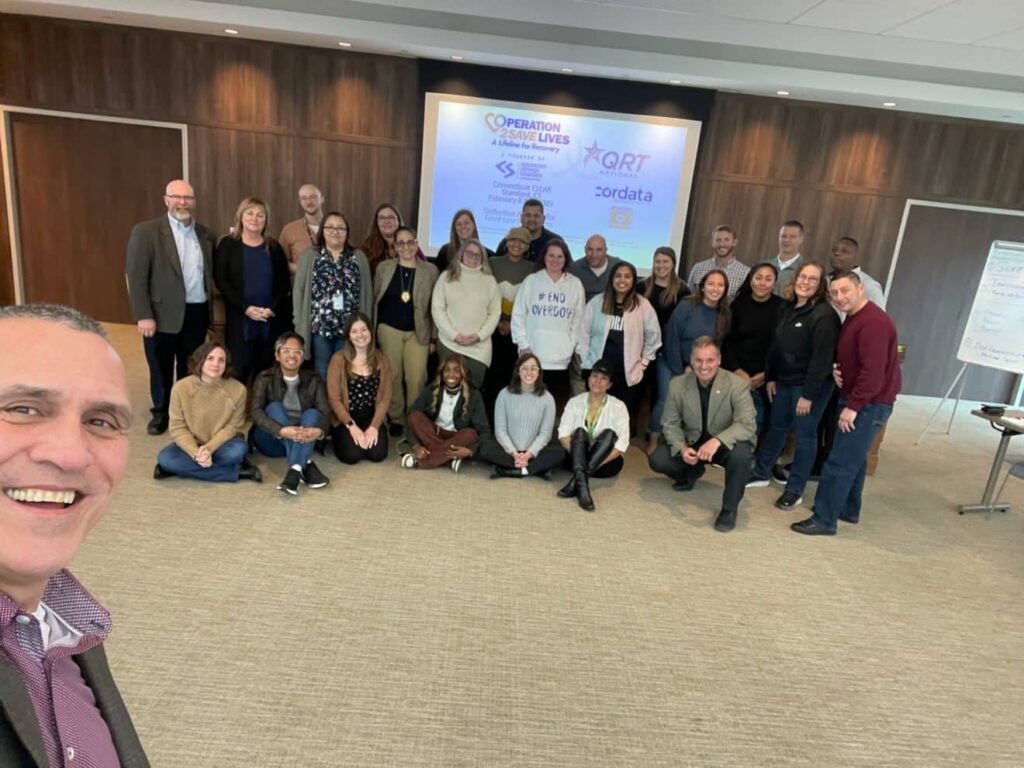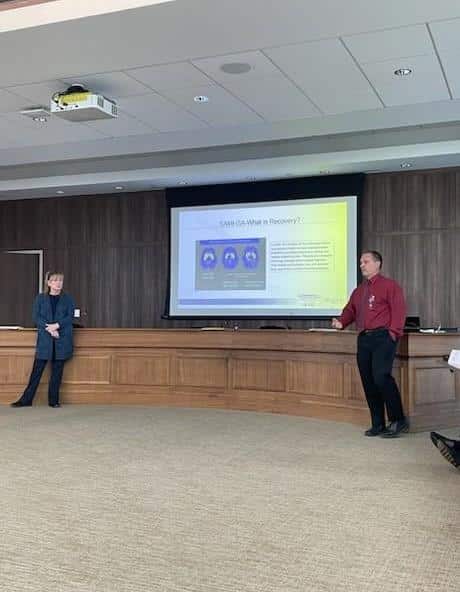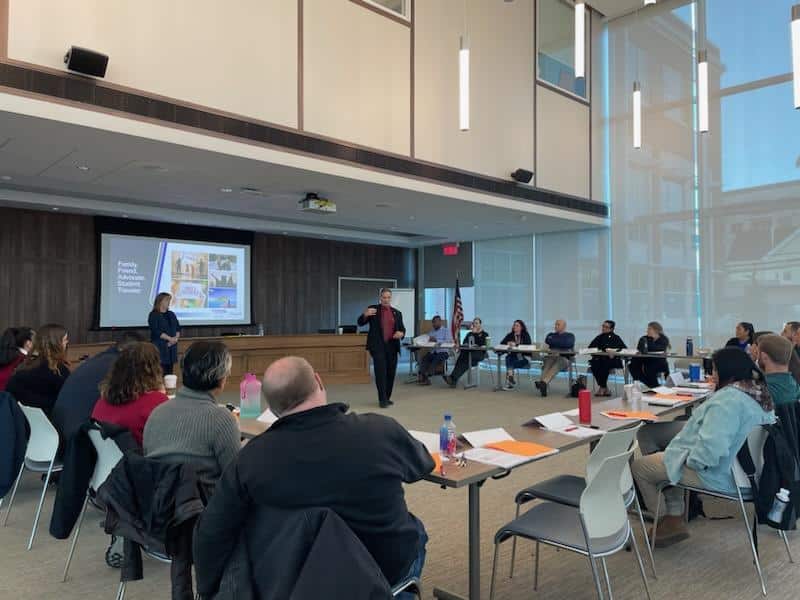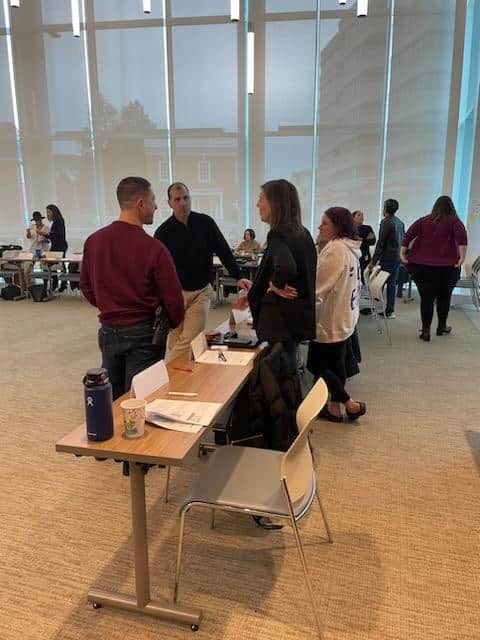
STAMFORD, Conn. – Operation 2 Save Lives (O2SL) & QRT National recently delivered pathway deflection training to public safety, overdose response team members, partners and leaders from the Connecticut Community and Law Enforcement for Addiction Recovery (CLEAR) initiative.
The Deflection Academy training was coordinated by O2SL & QRT National, in partnership with Cordata, and took place from Feb. 8-9 at the Stamford Police Department. Primary instructors included Scott Allen of O2SL & QRT National and Maureen Cavanagh, educator and certified peer recovery specialist instructor.
The two-day training offered new CLEAR team members, partners, and attendees from Fairfield County and Litchfield County an overview of nationally recognized deflection pathways. CLEAR is a deflection effort aiming to increase connections to care for people with substance use disorder (SUD) and to create a cohesive, collaborative response to addiction among community partners and law enforcement. CLEAR is a statewide initiative currently being piloted in six jurisdictions with their police departments and lead by Behavioral Health agencies McCall Behavioral Health Network and Liberation Programs.
Trainees learned about the origins of various pathways to pre-arrest diversion and deflection, discussed the structure and protocols for successful outreach engagements, reviewed the role of first responders and overall team field operations, and considered the importance of a multifaceted approach to overdose response efforts. The training also covered the importance of technology and data collection and reviewed the O2SL & QRT National integrated Cordata community technology platforms.
Once implemented, the pathways help community and public safety partners respond to, engage with, and assist persons who have experienced overdoses and are “at-risk” or vulnerable persons experiencing addiction. The training also addressed other community needs, such as mental health, drug endangered children, the impacts of trauma and trauma-informed responses, family support initiatives, harm reduction, and more.
“We were pleased to bring our Deflection training to public safety, health and community partners in Stamford, and are pleased to partner with CLEAR and
Cordata to provide resources and help agencies implement critical programming in their communities that can help save lives,” Allen said.
The CLEAR initiative operates in collaboration with partners in overdose response from many area agencies, including Liberation Programs, Stamford Department of Health, Stamford CARES, Bridgeport Hospital, Greenwich Postvention Team, McCall Behavioral Health Network, Greenwoods Counseling & Referrals, Charlotte Hungerford Hospital, Litchfield County Opiate Task Force, and others.
CLEAR, funded through the Connecticut Department of Mental Health and Addiction Services (DMHAS), is led by Statewide Project Manager Lauren Pristo from McCall Behavioral Health Network, with two regional site coordinators, Daniel Martineau of McCall and Liz Evans of Liberation Programs.
The training attendees represented several agencies, including the Watertown Police Department, Stamford Police Department, Greenwich Police Department, McCall Behavioral Health Network, Liberation Programs, Stamford CARES, and more.
###



